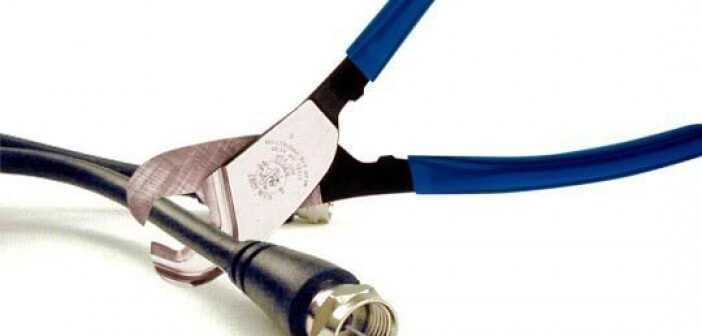How to Pay Off Student Loan Debt Before It Crushes Your Financial Freedom

On one hand student loans are terrible. They cause young people to start their independent lives with tens of thousands in debt.
On another hand, they’re kind of awesome. They allow young people to attend college with some skin in the game.
Do you know what happens when you don’t pay for something? It loses its value, big time.
They also differentiate those who are willing to make a smart decision and commit to something that will make them better. Otherwise college just becomes more high school.
I hear a lot of talk these days about how we should have student loan forgiveness and free college because tuition costs are too high. I certainly get not wanting to start your adult life off with a mountain of debt.
But here’s the thing about student loans
The system we have isn’t changing anytime soon. It’s likely to just get worse.
So, instead of whining about how we are victims, let’s just make the best of the system we have, grow up, and pay off our debt that we agreed to. That’s part of becoming an adult, and it’s a great lesson to learn as you get older.
After all, your expenses in your early 20s are as low as they’re ever going to be. If there’s a time to learn about money management before you ruin your financial life, that’s it.
If you’re fortunate enough to be reading this before you take off to school, there’s one really important thing to understand.
When choosing a school, and especially the financial situation you will be in at that school, you have choices.
To that point, the vast majority of debt is a choice. Sure you might have some things come up like a medical or home emergency, but other than that, debt doesn’t just happen to people. People are getting themselves into debt actively.
Here are a few ways to pay off student loan debt before it crushes you
Choosing a solid in-state school will be three times less expensive, at minimum
According to this research by collegedata.com, the average student pays $25,000 for out-of-state tuition at a public state school, while the average in-state student pays around $9,600 for the same in their home state. That’s basically three times less expensive for an in-state school.
Over four years that adds up to $40,000 vs $100,000, and that doesn’t even factor in the added cost of travel, housing, etc that may occur out-of-state.
Students-to-be really have to ask themselves if that out-of-state dream school is really worth the added inevitible debt. For what is likely to be a marginal difference in education, setting yourself up to be in a financial crater for 10+ years may not be the best idea.
Minimize expenses while you’re in school
On top of student loan debt, college-goers also tend to rack up other forms of debt in college, including credit card debt.
Thanks to the Credit CARD Act, this is happening at a far lower rate than it used to, but students can still get a credit card if they have an adult co-signer.
On top of this, the rise in consumerism by adults leads to every kid feeling like they should follow suit. With every kid experiencing an increasing need for a smart phone, laptop, the best clothing brands, expensive electronic devices, high dollar entertainment, etc as they see their parents do the same thing, this leads to a huge void if these things don’t exist.
This is not only a lesson for kids to learn, but also parents. Be careful with what you show your kids. They are easily influenced and will quickly pick up your behaviors.
It’s easy to rack up additional thousands or even tens of thousands of dollars of debt in four years time when much cheaper options exist.
Get a part time job and start saving money to pay back the debt you accrue
This may be the most simple one, but can be pretty difficult to pull off. I’ve been there before. Going to school full-time and keeping a part-time job leaves almost no time for fun.
But this is another decision on the road to adulthood that college kids must make. If you want to go to school and better yourself, and you want to do it without setting yourself back financially for years to come, then you may need to take some countermeasures to keep those loans in check while you are in school.
Even if you make just few thousand dollars a year, this can reduce the need for student loans significantly, and can get you a huge head start on paying them off when you finish.
If nothing else, summers are great for this. Summer break is a great time for students to come back home to their parents, live for free, get a temporary full-time job, and pocket some much needed dollars to keep those loan amounts lower.
Live at home for a couple of years afterwards. This is absolutely acceptable.
Now let’s talk a little bit about after school. More young people than ever are opting to live at home after college than they have since 1940.
Some pundits might put a poor social stigma on this, saying kids are delaying growing up, etc, and some of that may be true, but I would challenge those thoughts with one of my own.
Maybe kids are just trying to be smart about things before they’re completely out on their own? This is a great decision in my opinion.
Living expenses are as high as they’ve ever been, and this is the #1 expense that people experience in their lives. For someone with tens of thousands of dollars worth of debt, it makes absolutely no sense to dive head first into a situation where they barely have any sort of cash flow surplus.
But, if kids can live at home for a couple of years after school, make a full-time income, increase their skills and marketability, and pay off a large chunk of their student loan debt before the age of 25, why wouldn’t they?
I get the issue of independence, and parents should definitely consider cutting the cord before their kids are living at home in their 30s, but I don’t think there are any issues with a kid wanting to get on their feet financially before they are completely on their own.
When you get a job after school, allocate a large portion of your income to getting your debt paid down.
Minimum student loan payments are pretty low, which is appealing to young people because they feel like as long as they’re making the minimum payment, they’re in good shape.
But where this gets sticky is because students have so long to pay them off, with interest constantly piling up, it can take sometimes up to 25 years for students to pay off loans. That’s nearly an entire professional career of debt!
As with any type of debt, it’s NEVER a good idea to just pay the minimum.
A good rule of thumb is to pay off all kinds of short-term debt as quickly as possible without significantly jeopardizing your lifestyle. If this means allocating something like 50% of your income (or more) to paying student loans, then you may want to consider that.
The point is, before you move out on your own, buy a car, and start racking up adult-style expenses, allocate a large portion of your income to paying those loans first, then figure out your living situation with the rest.
Otherwise you’re going to be completely tapped out and stressed about debt for possibly decades.
Calculate Your Student Loan Payments
The list goes on. Just be smart about debt and treat it as a real life thing that you have to deal with and it doesn’t have to crush you.
You can use this student loan payoff calculator to figure out how long it’ll take you to pay back your loans.
From there, come up with a plan and execute it! That’s all there is to it.





